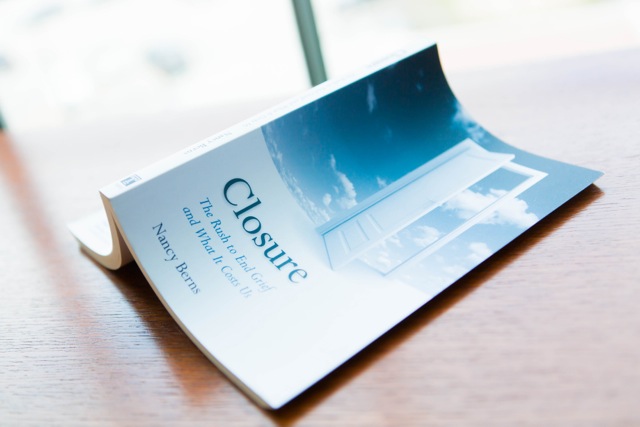Settling back in the chair, Tim talks about his wife Leah, who died 15 years ago. “There’s not a day that goes by without me thinking about her. You know, ‘What would she look like today? Would she still be working?’ You just kind of think about what our life might have been like. ‘What would she think about this? What would she say about that?’ And a lot of times you just don’t want to think about it because, you know, she’s gone, I’ve got somebody else, let’s just keep going on with life.”
I ask him, “Does it surprise you that you think about her every day?”
He replies, “No. No. We were just too close for me to not think of her.”
In our conversation, Tim describes a bond he continues to have with Leah, even though she died many years ago. These examples, plus more that he shares, might be enough for some to echo familiar myths about grief, such as, he has no closure, he is stuck in his grief, or he is suffering from a disorder.
But Tim would tell you that he is doing just fine. He is happily remarried and enjoys grandchildren, friends, and a fulfilling job. Yes, he misses Leah yet, but that makes sense to him. He loved her. He still does.
That does not mean Tim is “stuck” in his grief. He enjoys his current life, but Leah is still part of his family. The mother of his children. His first love.
We have the capacity to carry complicated emotions. Remembering people who have died is not disrespectful to those still living. And it does not keep us from living a full life and loving others. This may be hard to understand unless you have experienced it.
Before his wife died, Tim assumed people “got over” a death fairly quickly. Sure, the first year is really hard, he thought, but then it will be in the past. Not until Leah died did he realize how grief lingers.
Tim now has a different understanding of grief. He shares, “Imagine if you basically had your heart ripped out. And it hurts, it really hurts, and then it scabs over. And as it scabs over, you know, the pain is less but any little thing knocks the scab off. As time goes by, it takes more to knock the scab off. But when it gets knocked off, then it hurts just as bad as it did the first time. So it’s been 15 years now and the scab is pretty well on there, but it could still get knocked off. And it hurts.”
I asked Tim what things might knock off that scab. His response reflected what a lot of people share about events that trigger grief: weddings, grandchildren, special memories, or hearing a person’s familiar laugh in a crowd.
Part of our ongoing grief comes from milestone loss. There are special times, milestone events in our lives, when the absence of loved ones is particularly painful. We can still have joy in those events, such as getting married, having children, or watching graduations. But there is also the intense presence of loss when you know someone else should have been there to experience the joy with you.
Milestone loss can be especially hard for parents. When a child dies, say at age three, parents do not just lose a toddler. They lose a kindergartener, a first grader, a high school graduate, a mother or father of grandchildren, and a future caretaker.
How can you help? Do not pressure people to forget, move on, find closure, or get over a loss. If he or she wants to share stories, listen. If a person starts to cry, do not worry. Tears mark our love and pain, but they do not prevent joy. Sometimes, just acknowledging that you also remember can bring comfort.
If you are the one living with a loss, give yourself permission to grieve. It is ok.
We do not “get over” a death. We learn to carry the grief and integrate loss into our lives. In time, the grief becomes lighter, but still remains. At any point, something may knock off the scab on one’s heart. And it hurts.
In our hearts and minds, we carry forward those who have died. We grieve because we loved. We remember because we still love, even as we bring new relationships—and new love—into our lives.
In the end, we want hope, love, and joy to be stronger than grief. Still, there is room to carry sorrow and joy together. Just ask Tim.

Leave a Reply